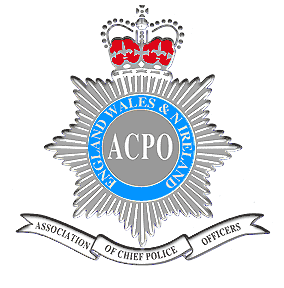ACPO Cannabis Enforcement Guidance
September 2003
The
ACPO Cannabis Enforcement Guidance
How officers will enforce the law against
cannabis following reclassification
ACPO
Press release
11th September 2003
ACPO
Cannabis Enforcement Guidance FAQs
Frequently asked questions - explaining
the difficult to explain

On the 12th September 2003, the Association of Chief Police Officers (ACPO) released a set of guidelines to assist police officers who were dealing with cannabis users, designed to be introudced in 2004 as cannabis is reclassified to class C and the Criminal Justice Bill is changed to give heavier punishments for class C drugs.
Popularly billed in the media as liberalising and even legalising cannabis possession, in fact they just give official guidance on the current situation, where many officers do not prosecute people for possessing small amounts of cannabis. The important phrase seems to be that there will be a "presumption against arrest" of possessing and using small amounts of cannabis in private. However, your cannabis will still be confiscated, your details recorded and a warning given. Repeated warnings may lead to full arrest.
Essentially, the outcome is at the police officer's discretion so there is no change from the current "justice by postcode" enforcement style, and the power of arrest could be still be used on every occasion if they so desire.
Whilst the concept of arresting fewer cannabis users is appealing there are no major changes to the current situation and of course these guidelines offer no assistance with removing the cannabis industry from the dangers of the black market, or educating and helping those people who choose to use it recreationally or medically do so in as safe a manner as possible. Cannabis is still 100% illegal, sort of.
ACPO Cannabis Enforcement Guidance
1. INTRODUCTION
1.1 The purpose of this paper is to issue guidance to officers dealing with simple offences of possession of cannabis by adult offenders when the drug is reclassified from Class B to Class C of Schedule 2 of the Misuse of Drugs Act 1971.
2. ARREST
2.1 A consequence of transferring cannabis from Class B to Class C is that under current legislation cannabis possession would ordinarily not be an arrestable offence under Section 24 of PACE 1984. However, the law is being amended in Parliament so that it will continue to be defined as an arrestable offence, but the presumption should be against using this power for simple possession offences.
2.2 There will be circumstances where it is appropriate to arrest for possession of cannabis. This is very much left to the discretion of officers who will be expected to take into account the prevailing circumstances in deciding whether to arrest or not. An officer may consider arrest in the following situations:
2.3 Beyond simple possession of cannabis
Context
The smoking of cannabis in public view is not in the spirit of re-classification. Such flagrant ignorance of the law has the potential of undermining the illegal status of possession of a controlled drug. A similar undermining could occur where, on a local basis, a police officer is aware of a person who is repeatedly dealt with for possession of cannabis.
Police officer may arrest
- Where a person is smoking cannabis in public view
- Where locally a person is known to be repeatedly dealt with for possession of cannabis.
2.4. Youth Offenders
Context
The Crime and Disorder Act provides a statutory framework for Youth Offenders to be dealt with in a different way to adult offenders using the options of a reprimand, final warning and charge. Youth offenders will continue to be dealt with through the Crime and Disorder Act provisions and not this Cannabis Enforcement Guidance. The Crime and Disorder Act legislation requires offenders to be dealt with at the police station which, in practice, means that police officers should arrest persons aged 17 years or under who are in possession of cannabis for personal use.
2.5 Locally Identified Policing Problem
Context
There may be circumstances such as a fear of public disorder associated with the use of cannabis which are causing a local policing problem that cannot be effectively dealt with by other powers.
Officers may arrest
- Persons who are in possession of cannabis under circumstances that are causing a locally identified policing problem.
2.6 Protect Young People
Context
There may be occasions where the possession of cannabis may create a risk to young people. However, this guidance is subordinate to any partnership agreement or memorandum of understanding within education establishments.
Officers may arrest
- Persons in possession of cannabis inside or in the vicinity of premises frequented by young persons, e.g. schools, youth clubs, play areas.
3.
OFFENDERS UNDER 10 YEARS
3.1 When children under the age of 10 years are found in possession of cannabis, this should be considered an "at risk" incident prompting the appropriate referrals to other agencies through the child protection team.
4.
VULNERABLE PERSONS
4.1 The term "vulnerable person" includes a person who may be mentally disordered or mentally handicapped or incapable of understanding the significance of questions or replies. They should be dealt with within the terms of this strategy by being arrested, their own personal welfare and interests being paramount. Final disposal will be within the ACPO Case Disposal Guidelines. All case disposal options, including Formal Warning, are available for consideration by the custody officer.
AH/13.06.03